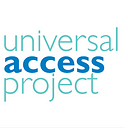Meet Sarmad, Engaging Men in Family Planning

By Seema Jalan
An estimated 20 million adolescent women want to prevent pregnancy but are not using a modern form of contraception. Around the world, young people are advocating in their communities for comprehensive sexual and reproductive health and rights for all.
Meet Sarmad, 24, Pakistani:
In Sarmad’s home country of Pakistan, adolescents and young people face many challenges, especially when it comes to sexual and reproductive health and rights.
“Lack of access to information regarding sexuality brings situations in their life that are stressful and complicated,” explained Sarmad. So, he began to advocate for youth sexual and reproductive health and rights — including through blogs, artwork, social media, and youth counseling. Sarmad even travels to remote and rural areas of the country to hep inform young people of their sexual and reproductive health and rights, including family planning.
“Choosing family planning as a significant theme to address in my country’s teenagers was essential for me to bring them out of these hard situations and provide them a safe, health, and rights-based scenario to practice their sexual health and rights without trouble,” said Sarmad.
But he faced challenges in his advocacy because he is a male, and now, much of his work focuses on involving young men in health and rights issues. “In my society, it is a taboo for men to be involved in such activities, as gender roles are very different here,” he said. “But I managed to overcome this.”
Sarmad’s advice for youth who want to make a difference in their communities:
“Rule number one: Be yourself and be what you are, only then can you contribute to create differences. Be patient and remember to initiate: Every step matters to being the journey of transformation. Rule number two: Let every experience that you have be yours only. Decide the way on the basis of what you have been through not what you hear from others. It seems to be self-centered, but it is not actually. It will help you to sort proper ways to choose the road less traveled. Never forget to empathize!”
Access to quality sexual and reproductive health information and services is a fundamental human right and a key intervention to enable young people everywhere to pursue an education, launch a career, and control their futures. Learn more about the Universal Access Project and get involved at www.universalaccessproject.org.
